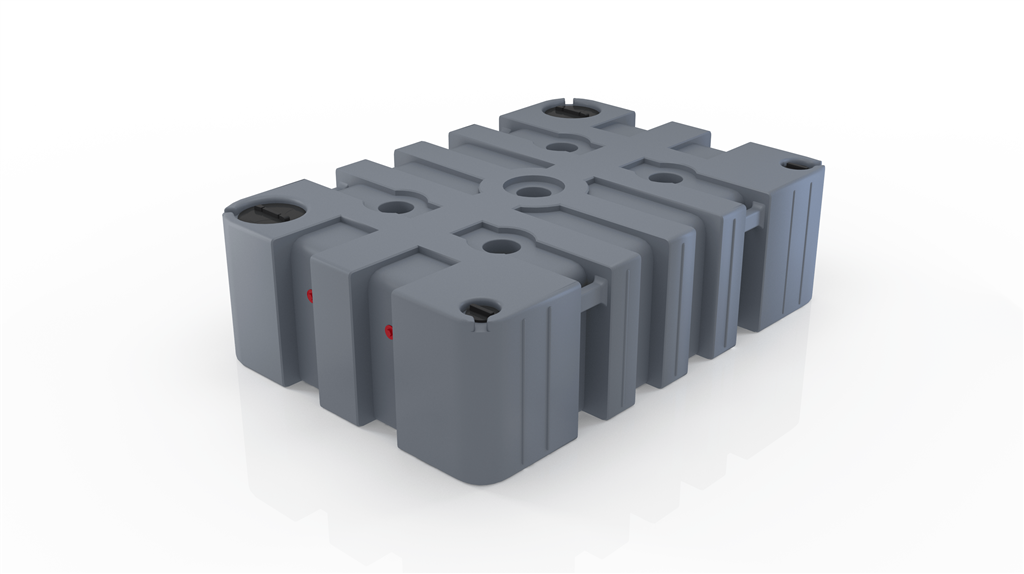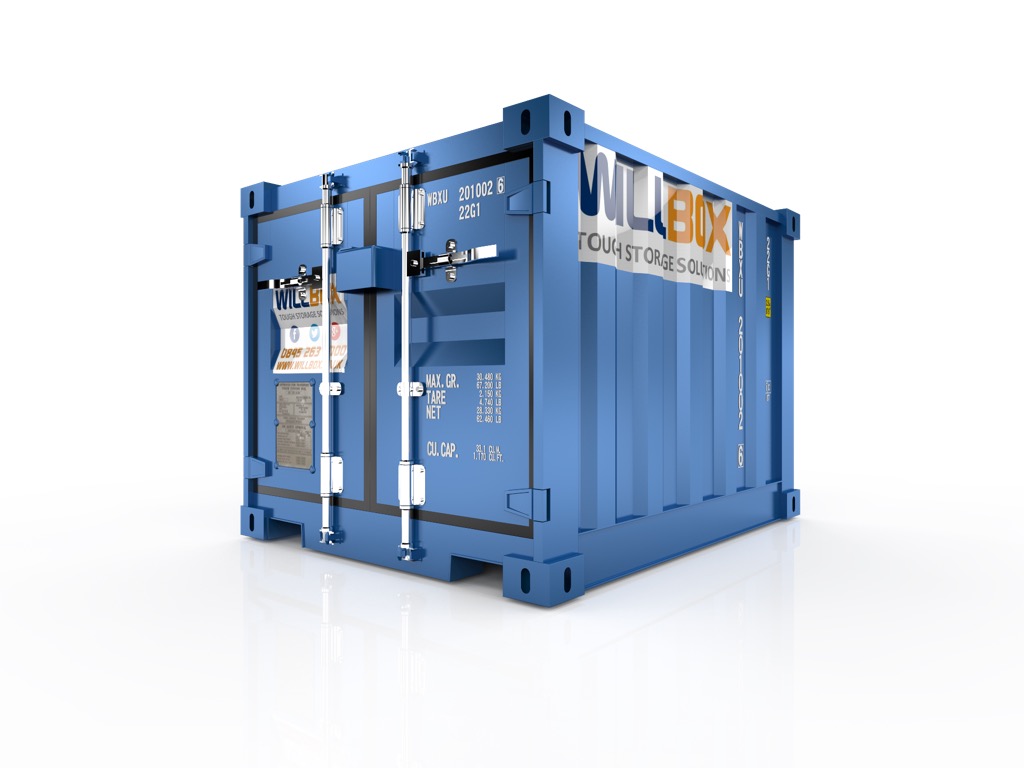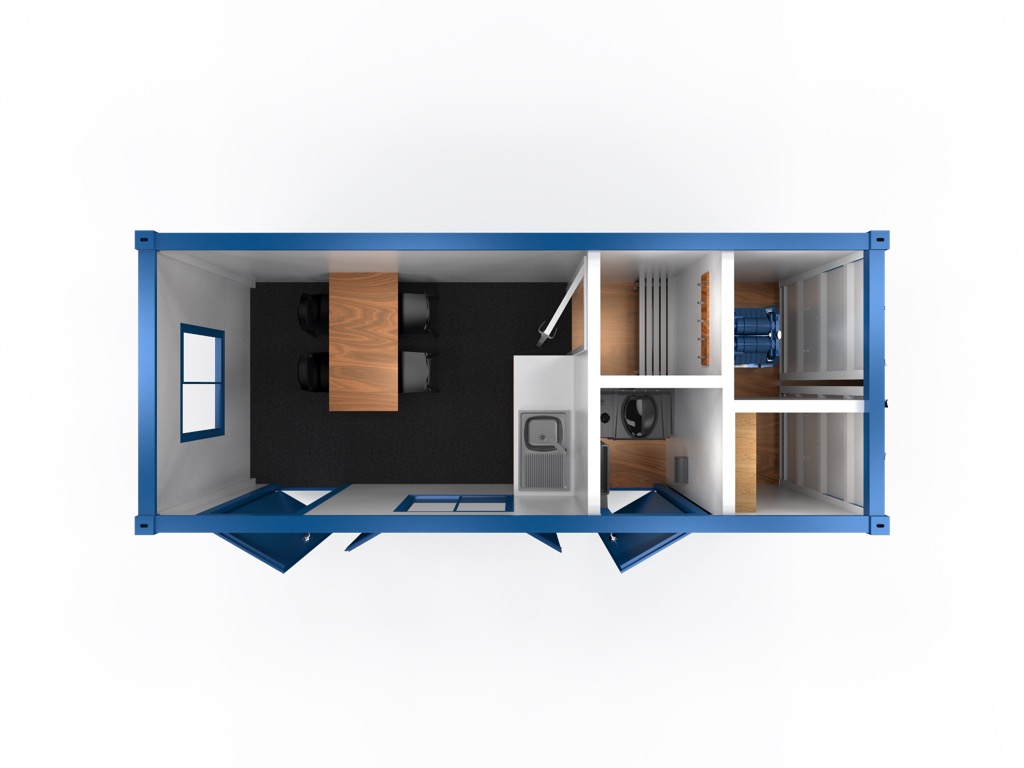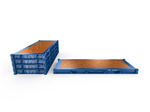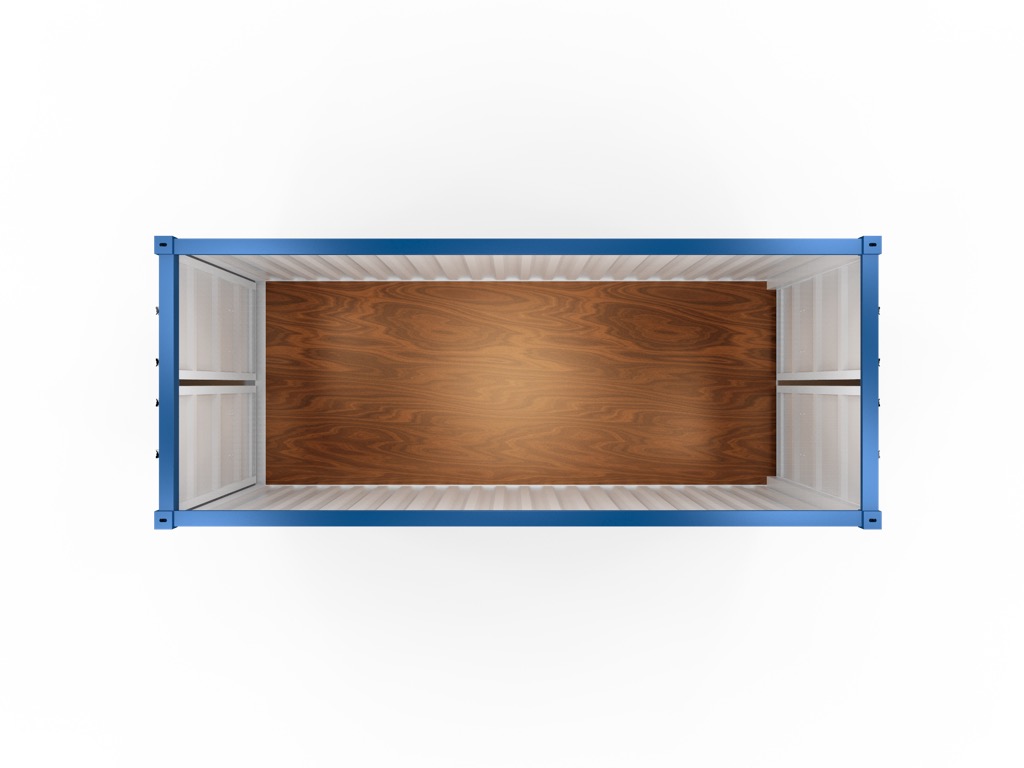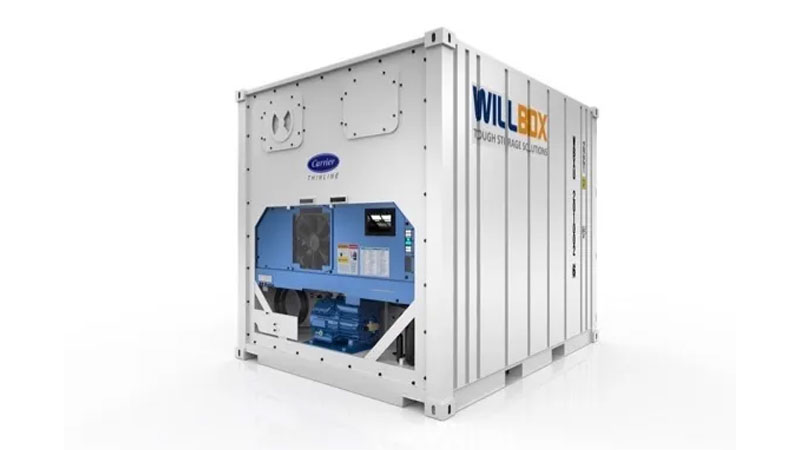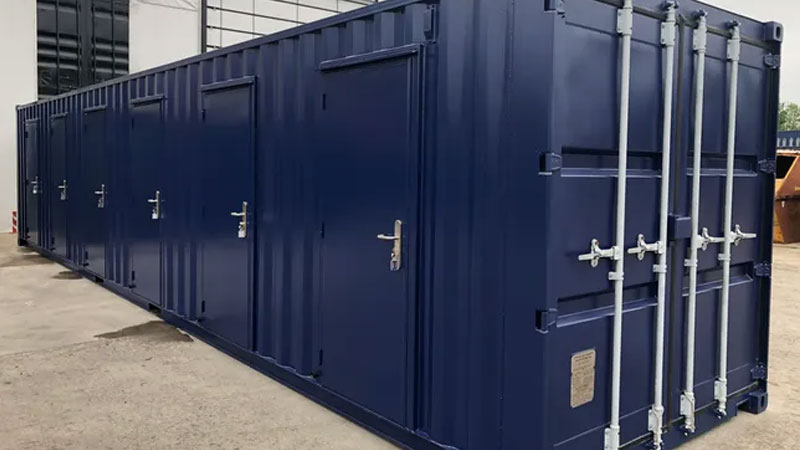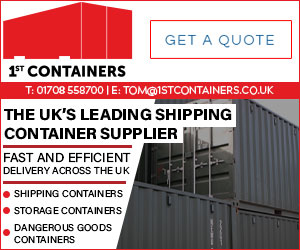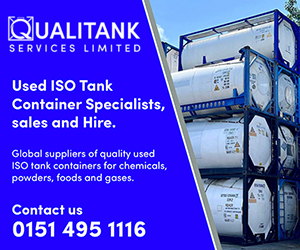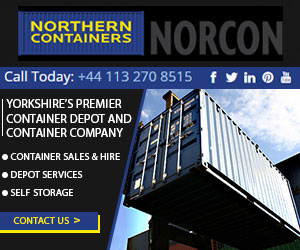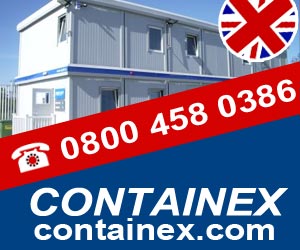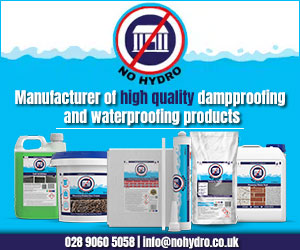Time and date
CONSTRUCTION DIRECTORY
Willbox Contact Details
Address
Crescent Estate
Station Road Nursling
Station Road Nursling
Southampton
SO160YD
Opening Hours
Tuesday
07:00-20:00
Monday
07:00-20:00
Tuesday
07:00-20:00
Wednesday
07:00-20:00
Thursday
07:00-20:00
Friday
07:00-20:00
Saturday
Closed
Sunday
Closed
Other Dates
About Willbox
Over 30 years of service
Willbox® is a national container and site accommodation supplier, with 23 strategically located depots across the UK.
Willbox® is part of the Williams Shipping group, founded in 1894, and has over 30 years experience in the shipping container market. Our customers range from blue chip organisations to SMEs and individuals.
Our in-house transport division, self-storage site set-up consultancy and conversions business ensures we’re able to assist customers across their entire journey, while limiting the economical and environmental impact on their business or vision.
Shipping Containers
Storage containers come in a range of different types and sizes, from 5’ up to 45’. The smaller storage containers are predominantly used in the domestic market for storage on buildings sites, and overflow storage for businesses, however individuals requiring extra space in residential areas are more frequently using them.
Some of the containers that meet ISO standards are known as shipping containers, and these can be CSC Plated (The International Convention of Safe Containers) which qualifies the container to be lifted whilst loaded, and transported via road, rail, and sea. Non ISO containers are often referred to as storage containers.
High Cube Container
High cube shipping containers are extremely versatile and practical storage and shipping units. The additional height of these containers give you an extra foot (12 inches, about 30cm) in height compared with standard shipping containers. This design is ideal for bulky cargo.
A distant, identical, but taller cousin of 20ft and 40ft standard containers, these specialised high cube containers are much in demand because of the extra height. At the same time, they are easy to stack on the vessels as they have a similar width as standard containers but they're added value is the ability to ship or store taller equipment, without having to customise a container or leave the equipment up against the elements using an open top container.
Open Side Container
Open side containers are one of the most popular shipping containers currently on the market. These side opening containers allow for access not only through the end as per a normal GP container, but also full side access. These side opening containers are recommended for both storage and international shipping, as they allow for easy access to all cargo.
Platform Container
Platform containers feature no sides, ends, or roof, hence being referred to as platforms. They are in essence a reinforced container floor, and are most commonly used to transport heavy, out of gauge oversized cargo (usually industrial machinery).
These containers are ISO standard, and can be used on commercial shipping lines. They have loading points along the side for lashing, and feature both fork pockets and ISO corners, so they can be easily manoeuvred when loaded.
Canteens
Anti vandal site canteens – often referred to as messrooms – are the most common site accommodation unit used. Featuring a sink, water heater, and electric points for appliances, canteens are the meeting point and hub for site workers to have their break in comfort.
Willbox offer canteens in 10’ and 20’ sizes, with the larger 20’ x 8’ unit often being used in a cabin stack, above or below a site office, or storage container. Our canteens seat between 6-12 persons, and have all the standard electric features such as heaters, lighting, and double sockets.
Offices
Our anti-vandal container offices provide a safe and secure space when on-site. Site managers can hold meetings, maintain a habitable workspace, and remain productive when away from their company headquarters.
All of our container offices are available in standard open-plan layout, with various furniture configurations on offer to suit every requirement.
Toilet Blocks
With the current health and safety laws, construction sites require welfare facilities, and this includes toilets. Willbox have been for many years a market leader in the provision of anti-vandal site toilets, and we continue to be a trusted name for toilet hire in the UK.
All of our anti vandal toilets can be used in conjunction with an effluent tank, or connected to the mains waste if available. If you choose to use an effluent tank, this can be emptied at a frequency to suit the level of use on site.
Willbox® is a national container and site accommodation supplier, with 23 strategically located depots across the UK.
Willbox® is part of the Williams Shipping group, founded in 1894, and has over 30 years experience in the shipping container market. Our customers range from blue chip organisations to SMEs and individuals.
Our in-house transport division, self-storage site set-up consultancy and conversions business ensures we’re able to assist customers across their entire journey, while limiting the economical and environmental impact on their business or vision.
Shipping Containers
Storage containers come in a range of different types and sizes, from 5’ up to 45’. The smaller storage containers are predominantly used in the domestic market for storage on buildings sites, and overflow storage for businesses, however individuals requiring extra space in residential areas are more frequently using them.
Some of the containers that meet ISO standards are known as shipping containers, and these can be CSC Plated (The International Convention of Safe Containers) which qualifies the container to be lifted whilst loaded, and transported via road, rail, and sea. Non ISO containers are often referred to as storage containers.
High Cube Container
High cube shipping containers are extremely versatile and practical storage and shipping units. The additional height of these containers give you an extra foot (12 inches, about 30cm) in height compared with standard shipping containers. This design is ideal for bulky cargo.
A distant, identical, but taller cousin of 20ft and 40ft standard containers, these specialised high cube containers are much in demand because of the extra height. At the same time, they are easy to stack on the vessels as they have a similar width as standard containers but they're added value is the ability to ship or store taller equipment, without having to customise a container or leave the equipment up against the elements using an open top container.
Open Side Container
Open side containers are one of the most popular shipping containers currently on the market. These side opening containers allow for access not only through the end as per a normal GP container, but also full side access. These side opening containers are recommended for both storage and international shipping, as they allow for easy access to all cargo.
Platform Container
Platform containers feature no sides, ends, or roof, hence being referred to as platforms. They are in essence a reinforced container floor, and are most commonly used to transport heavy, out of gauge oversized cargo (usually industrial machinery).
These containers are ISO standard, and can be used on commercial shipping lines. They have loading points along the side for lashing, and feature both fork pockets and ISO corners, so they can be easily manoeuvred when loaded.
Canteens
Anti vandal site canteens – often referred to as messrooms – are the most common site accommodation unit used. Featuring a sink, water heater, and electric points for appliances, canteens are the meeting point and hub for site workers to have their break in comfort.
Willbox offer canteens in 10’ and 20’ sizes, with the larger 20’ x 8’ unit often being used in a cabin stack, above or below a site office, or storage container. Our canteens seat between 6-12 persons, and have all the standard electric features such as heaters, lighting, and double sockets.
Offices
Our anti-vandal container offices provide a safe and secure space when on-site. Site managers can hold meetings, maintain a habitable workspace, and remain productive when away from their company headquarters.
All of our container offices are available in standard open-plan layout, with various furniture configurations on offer to suit every requirement.
Toilet Blocks
With the current health and safety laws, construction sites require welfare facilities, and this includes toilets. Willbox have been for many years a market leader in the provision of anti-vandal site toilets, and we continue to be a trusted name for toilet hire in the UK.
All of our anti vandal toilets can be used in conjunction with an effluent tank, or connected to the mains waste if available. If you choose to use an effluent tank, this can be emptied at a frequency to suit the level of use on site.
Reviews & Testimonials for Willbox

April 24, 2023
Willbox are a great company to deal with for container hire.
Lee goes out of his way to get the best deal for me every time.
From the initial quote request until delivery Lee is in constant contact to ensure everything is going according to plan.
Lee goes out of his way to get the best deal for me every time.
From the initial quote request until delivery Lee is in constant contact to ensure everything is going according to plan.
Testimonial
by
Neil Cuff

March 23, 2023
Great company to work with - Delivery was on time and with a friendly team. Would recommend for container hire in Scotland
Testimonial
by
Delgado

March 03, 2023
I have purchased from Willbox for many many years and have found the service to be 100% & friendly, from the forklift men in the yard to the office staff, always time for a little banter, when collecting & no waiting to be loaded. I will continue to buy my containers from Willbox, there's no better service out there.
Peter Quainton (Q Transport & Q Self storage)
Peter Quainton (Q Transport & Q Self storage)
Testimonial
by
Susan Quainton-Blake

February 16, 2023
I’m a very pleased first time customer, The service was so friendly, they couldn’t have been more helpful. An immaculate container was delivered quickly and efficiently, I can’t recommend them highly enough. Louise
Testimonial
by
Louise Wilson

January 19, 2023
Great company to deal with - Always helpful and knowledgeable. Would recommend for container needs.
Testimonial
by
Tom Sills

January 07, 2023
Fab service from enquiry through to purchase and delivery. No complaints at all - very competitive on price and will definately use again in the future for all my storage container needs! Courtney couldnt have been more helpful. Top company!
Testimonial
by
Taigan Callus

November 25, 2022
Easy people to work with, efficient and friendly, and the container was spotless inside and in good condition outside. Competitive hire rates and one of the best priced delivery and collection prices. Good to support local business. Whats not to like?
Testimonial
by
Henry Hillier

October 16, 2022
Excellent reliable service and communication from first phone call all the way through to the deliveries of our containers., I found that nothing was to much trouble with this professional friendly team., highly recommend.
Testimonial
by
Dawn Dayment

September 15, 2022
As per my phone conversation with Madison to advise her and thank her for the service I was given today with the delivery of my container, the driver (Kevin) was very helpful and very professional - all round nice guy. Thanks guys for all your help - much appreciated.
Testimonial
by
Kas OOHS

August 18, 2022
Very easy to deal with, speedy happy service. Thank you.
Testimonial
by
Stuart Rogers

July 26, 2022
Very helpful polite and reasonably priced
Would definitely use these guys agin
Would definitely use these guys agin
Testimonial
by
Ashley SLS

May 25, 2022
Overall very pleased with my experience dealing with Willbox. The container arrived promptly, the price was good and the customer service provided by Lee at Willbox was friendly, professional and attentive. I would highly recommend based on my experience to date
Testimonial
by
Sheldon Pavey
Gallery
|
Click to close
|
Videos
News
02/10/2023
Willbox's shipping container hire is booming in Scotland
Willbox has witnessed a surge in its shipping container hire division, marking a remarkable journey of continued growth in the Scottish market.
Since April 2023, Willbox has doubled its rented fleet size and secured new contracts, solidifying its position as a leading provider of shipping containers and site accommodation units. Dedication to quality service, competitive pricing and flexible contracts have contributed significantly to this success.
With three key locations in Scotland; Aberdeen, Falkirk, and Inverness, we have strategically expanded our presence to serve a diverse clientele. These locations have become pivotal hubs in the region for various industries. When Matthew Pirie, Scotland’s Regional Manager joined us earlier this year, he wanted Willbox to grow and become one of the leading site accommodation and shipping container suppliers in Scotland. His plan for the expansion of Willbox is still in motion and this landmark figure of doubling our rented fleet is a step in the right direction.
"Our continued growth in Scotland reflects not only our commitment to delivering top-quality service but also our adaptability to meeting the evolving needs of our clients," said Matthew Pirie, Scotland's Regional Manager. "We are excited about the opportunities in the Aberdeen area, where we see significant potential for collaboration and contribution to the region's sustainable future.”
The company's ability to serve multiple industries from construction to engineering, renewables to storage and everything in between, has been instrumental in its growth. Willbox understands the unique needs and demands of each sector, ensuring that clients receive tailor-made solutions that meet their requirements effectively.
“Our fleet is very diverse, starting from standard shipping containers to canteens, drying rooms, offices, toilets, combination units and sleeper cabins, all of which can be used by construction sites, sports teams, and a variety of events. “ said Matthew Pirie.
As we continue to expand our presence and services in Scotland, we remain dedicated to providing reliable and versatile shipping container solutions that meet the diverse needs of various industries. With a positive outlook in the Aberdeen area and a commitment to supporting sustainability initiatives, Willbox is poised to play a pivotal role in Scotland's journey towards a greener and more prosperous future.
Take a look at our fleet list of shipping containers and site accommodation units for hire. To learn more or if you would like to make an enquiry, contact Matthew Pirie at matthew@willbox.co.uk who will be more than happy to assist you or fill out a quote online.
Since April 2023, Willbox has doubled its rented fleet size and secured new contracts, solidifying its position as a leading provider of shipping containers and site accommodation units. Dedication to quality service, competitive pricing and flexible contracts have contributed significantly to this success.
With three key locations in Scotland; Aberdeen, Falkirk, and Inverness, we have strategically expanded our presence to serve a diverse clientele. These locations have become pivotal hubs in the region for various industries. When Matthew Pirie, Scotland’s Regional Manager joined us earlier this year, he wanted Willbox to grow and become one of the leading site accommodation and shipping container suppliers in Scotland. His plan for the expansion of Willbox is still in motion and this landmark figure of doubling our rented fleet is a step in the right direction.
"Our continued growth in Scotland reflects not only our commitment to delivering top-quality service but also our adaptability to meeting the evolving needs of our clients," said Matthew Pirie, Scotland's Regional Manager. "We are excited about the opportunities in the Aberdeen area, where we see significant potential for collaboration and contribution to the region's sustainable future.”
The company's ability to serve multiple industries from construction to engineering, renewables to storage and everything in between, has been instrumental in its growth. Willbox understands the unique needs and demands of each sector, ensuring that clients receive tailor-made solutions that meet their requirements effectively.
“Our fleet is very diverse, starting from standard shipping containers to canteens, drying rooms, offices, toilets, combination units and sleeper cabins, all of which can be used by construction sites, sports teams, and a variety of events. “ said Matthew Pirie.
As we continue to expand our presence and services in Scotland, we remain dedicated to providing reliable and versatile shipping container solutions that meet the diverse needs of various industries. With a positive outlook in the Aberdeen area and a commitment to supporting sustainability initiatives, Willbox is poised to play a pivotal role in Scotland's journey towards a greener and more prosperous future.
Take a look at our fleet list of shipping containers and site accommodation units for hire. To learn more or if you would like to make an enquiry, contact Matthew Pirie at matthew@willbox.co.uk who will be more than happy to assist you or fill out a quote online.
20/09/2023
How to install electrics in a shipping container
Imagine walking around in your shipping container, knowing exactly where all the wall outlets are to help you fire up the kettle, reheat your food in the microwave or just sit down and relax.
Installing electrics in a shipping container can be fairly straightforward if you know where to start.
Here’s how to install electrics in your shipping container unit
Running electricity in your container is not a very complicated process. If you're looking to turn yours into an office or workspace, here’s what you need to do:
Power requirements
The first thing to determine is the type of electricity you require. For example, how many devices and appliances will you need to run at any given time? You can install outlets for both 120v and 240v, although you need to know the power requirements of your devices and the supply load coming from the grid.
Wiring and power receptacle
Installing the wiring and power receptacle will require some drilling and wall cutting. While you may be able to do this yourself, it’s best to hire a professional who will use a conduit to protect your wiring from all the various elements.
Additionally, you can get a consultation from our conversions team to run the required wiring within the container, and to the electrical panel installed outside it.
GFCI installation work
Finally, install a ground fault circuit interrupter (GFCI) along with any lighting you may need for safety.
And, that’s it! You can now run electricity throughout your shipping container.
Before you begin the electrical work
Before installing any wiring, you must have a clear picture of where all the light switches, light fixtures, wall outlets, and breaker boxes will be. Your container may have multiple rooms, so that means each room will have unique uses and requirements.
An entertainment, for example, may require more wall outlets than one room, especially if you want to run many different kinds of electronics simultaneously.
Shower blocks, on the other hand, will need to have the outlets situated close to the vanity to run electric grooming appliances or tools, hair dryers, electric toothbrushes, etc.
You must determine the type of conduit to be used in your container unit. A PVC schedule 40 conduits might be a good choice; EMT (Electric Metallic Tube) is also frequently used for shipping containers as well.
A conduit helps you manage fast wire pulls inside the container, helping to protect the wiring against crushing, impacts, and magnetic fields, as well as corrosion.
It’s also a good idea to ground your shipping container unit properly to protect yourself as well as your electronics and appliances from the risk of electric shock. However, do get your ground rod checked by our conversions team to ensure that it is below 25 ohms to the ground, as this provides sufficient lightning protection for your container’s electrical system.
Closing thoughts
Depending on the level of wiring required in your container to power everything up properly, you may need professional guidance. Our residential and workplace containers are designed on a bespoke basis to meet all your electrical demands. Call our friendly conversions team now to learn more: 0808 503 4785.
Installing electrics in a shipping container can be fairly straightforward if you know where to start.
Here’s how to install electrics in your shipping container unit
Running electricity in your container is not a very complicated process. If you're looking to turn yours into an office or workspace, here’s what you need to do:
Power requirements
The first thing to determine is the type of electricity you require. For example, how many devices and appliances will you need to run at any given time? You can install outlets for both 120v and 240v, although you need to know the power requirements of your devices and the supply load coming from the grid.
Wiring and power receptacle
Installing the wiring and power receptacle will require some drilling and wall cutting. While you may be able to do this yourself, it’s best to hire a professional who will use a conduit to protect your wiring from all the various elements.
Additionally, you can get a consultation from our conversions team to run the required wiring within the container, and to the electrical panel installed outside it.
GFCI installation work
Finally, install a ground fault circuit interrupter (GFCI) along with any lighting you may need for safety.
And, that’s it! You can now run electricity throughout your shipping container.
Before you begin the electrical work
Before installing any wiring, you must have a clear picture of where all the light switches, light fixtures, wall outlets, and breaker boxes will be. Your container may have multiple rooms, so that means each room will have unique uses and requirements.
An entertainment, for example, may require more wall outlets than one room, especially if you want to run many different kinds of electronics simultaneously.
Shower blocks, on the other hand, will need to have the outlets situated close to the vanity to run electric grooming appliances or tools, hair dryers, electric toothbrushes, etc.
You must determine the type of conduit to be used in your container unit. A PVC schedule 40 conduits might be a good choice; EMT (Electric Metallic Tube) is also frequently used for shipping containers as well.
A conduit helps you manage fast wire pulls inside the container, helping to protect the wiring against crushing, impacts, and magnetic fields, as well as corrosion.
It’s also a good idea to ground your shipping container unit properly to protect yourself as well as your electronics and appliances from the risk of electric shock. However, do get your ground rod checked by our conversions team to ensure that it is below 25 ohms to the ground, as this provides sufficient lightning protection for your container’s electrical system.
Closing thoughts
Depending on the level of wiring required in your container to power everything up properly, you may need professional guidance. Our residential and workplace containers are designed on a bespoke basis to meet all your electrical demands. Call our friendly conversions team now to learn more: 0808 503 4785.
25/08/2023
The Container Deposit problem: Overcoming hidden challenges in shipping
International shipping can be a somewhat complex subject to decipher, even if you strip it down to its most basic form. The world is fuelled by global trade, particularly maritime shipping. However, many of the key processes are still inefficient and can prove to be quite challenging in terms of day-to-day shipping operations, particularly for SMEs.
The issues of container deposits is not brought up frequently enough when discussing potential issues and challenges to deal with in the shipping container industry – despite the fact that they often lead to some pretty significant cash flow issues for exporters.
In this article, we’re going to go over a brief overview of the container deposit problem, why it’s such a major issue for businesses, particularly SMEs, and what can be done about it.
How container deposits adversely impact businesses
Shipping containers are absolutely vital for shipping lines, helping shippers safely and securely transport their goods.
Whenever shippers book containers, they must return them back in good condition and within the agreed timeframe, as a commercial obligation. If there’s any delay in the return, or there’s damage or total loss during this period, the shipper must pay the resultant charges to shipping lines, termed demurrage, damage, or total loss.
Emerging markets like Africa, for example, carry a higher risk of delay, damage or loss because of infrastructure challenges, political instability, and often cumbersome customs protocols, which naturally, affects the international transfer of goods.
Due to these challenges and many others, shipping lines need to have container deposits in place before they can release containers to their clients. And, unfortunately, due to a lack of better alternatives, shipping lines only have container deposits as their sole security measure – which may range from a few hundred dollars to thousands of dollars per container. These deposits are used as cover for charges arising due to demurrage, damage, or total loss, should their clients fail to pay the charges.
However, there are multiple issues with this arrangement, causing SME’s in East Africa alone an estimated cashflow burden of $1.5b each year:
Lost business opportunities
The mandatory container deposits means that SMEs looking to embrace new business opportunities will be discouraged as they may not have the financial resources/cash flow to do so, leading to lost business opportunities.
Competitiveness
The high cost of container deposits can really put a strain on SMEs, putting them at a competitive disadvantage, compared to larger companies who have enough resources to afford the deposits.
Administrative issues
Paying container deposits can be a very complex and time-consuming administrative process, especially in emerging markets where no structure for standardisation and transparency exists, making it extra-difficult for SMEs to navigate the process smoothly.
Cash flow impact
Container deposits can tie up SMEs’ cash flow, especially if they must pay deposits for several containers, creating cash flow problems and limiting investment opportunities.
The solution?
At Willbox, we closely collaborate with the industry’s key stakeholders, including public and private players in the logistics sector. Our shipping container rates are some of the most competitive in the market, and we are always willing to help ease the pressure on new businesses and SMEs entering their respective industries.
?
The issues of container deposits is not brought up frequently enough when discussing potential issues and challenges to deal with in the shipping container industry – despite the fact that they often lead to some pretty significant cash flow issues for exporters.
In this article, we’re going to go over a brief overview of the container deposit problem, why it’s such a major issue for businesses, particularly SMEs, and what can be done about it.
How container deposits adversely impact businesses
Shipping containers are absolutely vital for shipping lines, helping shippers safely and securely transport their goods.
Whenever shippers book containers, they must return them back in good condition and within the agreed timeframe, as a commercial obligation. If there’s any delay in the return, or there’s damage or total loss during this period, the shipper must pay the resultant charges to shipping lines, termed demurrage, damage, or total loss.
Emerging markets like Africa, for example, carry a higher risk of delay, damage or loss because of infrastructure challenges, political instability, and often cumbersome customs protocols, which naturally, affects the international transfer of goods.
Due to these challenges and many others, shipping lines need to have container deposits in place before they can release containers to their clients. And, unfortunately, due to a lack of better alternatives, shipping lines only have container deposits as their sole security measure – which may range from a few hundred dollars to thousands of dollars per container. These deposits are used as cover for charges arising due to demurrage, damage, or total loss, should their clients fail to pay the charges.
However, there are multiple issues with this arrangement, causing SME’s in East Africa alone an estimated cashflow burden of $1.5b each year:
Lost business opportunities
The mandatory container deposits means that SMEs looking to embrace new business opportunities will be discouraged as they may not have the financial resources/cash flow to do so, leading to lost business opportunities.
Competitiveness
The high cost of container deposits can really put a strain on SMEs, putting them at a competitive disadvantage, compared to larger companies who have enough resources to afford the deposits.
Administrative issues
Paying container deposits can be a very complex and time-consuming administrative process, especially in emerging markets where no structure for standardisation and transparency exists, making it extra-difficult for SMEs to navigate the process smoothly.
Cash flow impact
Container deposits can tie up SMEs’ cash flow, especially if they must pay deposits for several containers, creating cash flow problems and limiting investment opportunities.
The solution?
At Willbox, we closely collaborate with the industry’s key stakeholders, including public and private players in the logistics sector. Our shipping container rates are some of the most competitive in the market, and we are always willing to help ease the pressure on new businesses and SMEs entering their respective industries.
?
16/08/2023
A guide to buying shipping containers
Shipping containers available for sale have opened up all kinds of possibilities now, offering some very cost-effective and customisable solutions to accommodate the unique needs of different buyers. Once sold only within the maritime transportation sector, shipping containers have now become highly versatile structures, finding use well beyond their intended purpose.
Let’s explore some of the applications of shipping containers, along with the unique benefits they can bring to different industries.
What kind of industries can benefit from shipping containers?
Shipping containers have found many uses today across different industries, including:
Storage and warehousing
Shipping containers for storage and warehousing has become commonplace, thanks to their highly resilient and weather-resistant structure. This has made them ideal for storing anything from equipment and supplies to consumer goods, food, and all kinds of machinery.
Retail and hospitality
There has been an uptick in the retail and hospitality sector, where shipping container conversions are being used to create attractive bars, storefronts, food stalls, and temporary makeshift event spaces. This versatility has allowed many retail and hospital brands to come up with highly unique creative branding as well as all design strategies.
Construct and architecture
For many years now, shipping containers have been steadily gaining popularity in the construction sector. Some of the most innovative architectural designs have stemmed from shipping containers. This is not surprising though because they offer a very sustainable and eco-friendly option compared to the traditional way of constructing offices, homes, cafes or retail spaces.
Disaster relief and emergency housing
During times of crisis, shipping containers have continued to prove highly useful, acting as mobile clinics, emergency housing hubs, and temporary shelters. Since they are highly durable and can be quickly deployed, they can be quickly transported to disaster-stricken areas to provide much needed relief and support.
Transportation
Shipping containers have proven to be just as versatile in the transportation sector, improving the way goods are moved and transported across the world.
Their highly durable and standardised structure now acts as the backbone of the logistics industry, providing a very efficient means of moving around goods, be it by land, sea or air.
Things to look for when shopping around for a shipping container
Design versatility
Naturally, one of the key reasons people pick up shipping containers is their customisable and adaptable nature. Always look for a modular design that can be easily modified to suit your unique application.
Be it a retail pop-up stand, portable office, temporary shelter or residential housing project, your shipping container should offer enough flexibility to act as a highly functional yet aesthetic structure.
Portability and mobility
Additionally, look for a shipping container that can be easily moved around whenever you need to relocate. It should also be easy to load onto a truck, train or ship.
Accessibility, durability and sustainability
The ideal shipping container is always easily available no matter how many units you require, and should be durable enough to withstand the rigours of transportation. It should also be made from sustainable materials that last nearly a lifetime.
Willbox is your premier shipping container supplier, helping you meet a variety of needs. Learn more: 0330 021 4601.
Let’s explore some of the applications of shipping containers, along with the unique benefits they can bring to different industries.
What kind of industries can benefit from shipping containers?
Shipping containers have found many uses today across different industries, including:
Storage and warehousing
Shipping containers for storage and warehousing has become commonplace, thanks to their highly resilient and weather-resistant structure. This has made them ideal for storing anything from equipment and supplies to consumer goods, food, and all kinds of machinery.
Retail and hospitality
There has been an uptick in the retail and hospitality sector, where shipping container conversions are being used to create attractive bars, storefronts, food stalls, and temporary makeshift event spaces. This versatility has allowed many retail and hospital brands to come up with highly unique creative branding as well as all design strategies.
Construct and architecture
For many years now, shipping containers have been steadily gaining popularity in the construction sector. Some of the most innovative architectural designs have stemmed from shipping containers. This is not surprising though because they offer a very sustainable and eco-friendly option compared to the traditional way of constructing offices, homes, cafes or retail spaces.
Disaster relief and emergency housing
During times of crisis, shipping containers have continued to prove highly useful, acting as mobile clinics, emergency housing hubs, and temporary shelters. Since they are highly durable and can be quickly deployed, they can be quickly transported to disaster-stricken areas to provide much needed relief and support.
Transportation
Shipping containers have proven to be just as versatile in the transportation sector, improving the way goods are moved and transported across the world.
Their highly durable and standardised structure now acts as the backbone of the logistics industry, providing a very efficient means of moving around goods, be it by land, sea or air.
Things to look for when shopping around for a shipping container
Design versatility
Naturally, one of the key reasons people pick up shipping containers is their customisable and adaptable nature. Always look for a modular design that can be easily modified to suit your unique application.
Be it a retail pop-up stand, portable office, temporary shelter or residential housing project, your shipping container should offer enough flexibility to act as a highly functional yet aesthetic structure.
Portability and mobility
Additionally, look for a shipping container that can be easily moved around whenever you need to relocate. It should also be easy to load onto a truck, train or ship.
Accessibility, durability and sustainability
The ideal shipping container is always easily available no matter how many units you require, and should be durable enough to withstand the rigours of transportation. It should also be made from sustainable materials that last nearly a lifetime.
Willbox is your premier shipping container supplier, helping you meet a variety of needs. Learn more: 0330 021 4601.
21/07/2023
Bespoke shipping container market size, statistics and uses
In 2021, the global market size for container homes and offices was valued at $56.85b. Between 2022 and 2029, it will exhibit a CAGR (compound annual growth rate) of 5.7% - going from $59.27b in 2022 to $87.11b in 2029.
What a shipping container is and why they’ve become so popular
Shipping containers as a home, dwelling or working space have become quite popular in recent years. The large and reusable intermodal containers which are typically used to transport goods are now being used as homes and even residential units or buildings. Container homes can also be used to store goods on a temporary basis or move them across the world when need be. They can fit easily on the back of trucks or loaded onto ships and trains.
Given the uniform dimensions of containers, they are used by both families and corporates to provide customised homes and office spaces – a flat-looking shipping container from the outside, but a fully furnished and cosy home or office from the inside.
Bespoke container builds have continued to grow in popularity across the world because of their practicality and cost-effectiveness. They are also secure, easy to lift, and equally easy to put together. Most shipping containers are built from sustainable materials, so the idea of building a home out of a shipping container amidst the current cost of living crisis is a very feasible option indeed.
Latest ‘shipping container for home’ trends and driving factors
Since the pandemic, container homes and other bespoke builds have been gaining traction quickly as a sustainable form of living. Around 14 million containers around the world are currently being utilised in creative ways to make homes and rooms that cater to all budgets.
In fact, many architectural design concepts and possibilities have been explored thus far to build some truly stunning living and working spaces. For example, people have experimented with a variety of styles with their containers, from wooden accents and glass interiors to adding splashes of greenery across the corrugation, spiral staircases, and even transforming their space into a guesthouse to let.
Containers provide for some excellent and highly sustainable designing, adding a good sense of open space and style. They may also help to reduce electricity bills and other house expenses, and we are no doubt seeing consistent market growth both now and in the coming years.
Apart from doubling up as a cosy residential or working unit, shipping containers are also in high demand by construction companies which are now focusing more on sustainable construction and development methods, in order to obtain the desired energy efficiency certifications. Shipping containers made from sustainable, low-emission and energy-efficient materials are the perfect choice across multiple industries.
Governments worldwide are also making the push towards more energy-efficient infrastructure development and manufacturing practices, including green buildings, for which modular containers are ideal.
Closing thoughts on container home market size
The IFC (International Finance Corporation) estimates that the bespoke shipping container builds market could reach a value of $24.7 trillion by 2030. With the push towards more green and sustainable buildings, you can bet that the UK housing market will also continue to become more saturated with affordable homes made from shipping containers.
Willbox is your ‘go-to’ solution for container conversions and bespoke build solutions. Whether you want to use a shipping container as a home or office, or simply need to store items of interest, we can provide one that’s bespoke to your needs at some of the best rates you’ll find in the shipping container market: 0800 023 506
What a shipping container is and why they’ve become so popular
Shipping containers as a home, dwelling or working space have become quite popular in recent years. The large and reusable intermodal containers which are typically used to transport goods are now being used as homes and even residential units or buildings. Container homes can also be used to store goods on a temporary basis or move them across the world when need be. They can fit easily on the back of trucks or loaded onto ships and trains.
Given the uniform dimensions of containers, they are used by both families and corporates to provide customised homes and office spaces – a flat-looking shipping container from the outside, but a fully furnished and cosy home or office from the inside.
Bespoke container builds have continued to grow in popularity across the world because of their practicality and cost-effectiveness. They are also secure, easy to lift, and equally easy to put together. Most shipping containers are built from sustainable materials, so the idea of building a home out of a shipping container amidst the current cost of living crisis is a very feasible option indeed.
Latest ‘shipping container for home’ trends and driving factors
Since the pandemic, container homes and other bespoke builds have been gaining traction quickly as a sustainable form of living. Around 14 million containers around the world are currently being utilised in creative ways to make homes and rooms that cater to all budgets.
In fact, many architectural design concepts and possibilities have been explored thus far to build some truly stunning living and working spaces. For example, people have experimented with a variety of styles with their containers, from wooden accents and glass interiors to adding splashes of greenery across the corrugation, spiral staircases, and even transforming their space into a guesthouse to let.
Containers provide for some excellent and highly sustainable designing, adding a good sense of open space and style. They may also help to reduce electricity bills and other house expenses, and we are no doubt seeing consistent market growth both now and in the coming years.
Apart from doubling up as a cosy residential or working unit, shipping containers are also in high demand by construction companies which are now focusing more on sustainable construction and development methods, in order to obtain the desired energy efficiency certifications. Shipping containers made from sustainable, low-emission and energy-efficient materials are the perfect choice across multiple industries.
Governments worldwide are also making the push towards more energy-efficient infrastructure development and manufacturing practices, including green buildings, for which modular containers are ideal.
Closing thoughts on container home market size
The IFC (International Finance Corporation) estimates that the bespoke shipping container builds market could reach a value of $24.7 trillion by 2030. With the push towards more green and sustainable buildings, you can bet that the UK housing market will also continue to become more saturated with affordable homes made from shipping containers.
Willbox is your ‘go-to’ solution for container conversions and bespoke build solutions. Whether you want to use a shipping container as a home or office, or simply need to store items of interest, we can provide one that’s bespoke to your needs at some of the best rates you’ll find in the shipping container market: 0800 023 506
07/07/2023
Global shipping outlook this year: Is it all about capacity now?
With general outlook for shipping remaining somewhat mixed this year and cargo growth looking a bit weak, capacity is the one factor we should all keep an eye out for.
The container market is bracing for a flood in capacity even though the total orders for new tankers appears to be limited in comparison. Coupled with longer trade routes and recovered oil demand, the market continues to remain tight, inevitably, resulting in higher long-term rates.
Global trade and shipping continues to shift
Following the industrial and economic recession in both the US and EU, as well as the rationalisation of surplus inventories, global trade started slipping into contraction by the end of 2022, entering a low-growth period following supply chain reconsiderations, protectionism, and geopolitical concerns.
Going into 2024, growth is expected to stay low which puts shipping tonnage under pressure. However, a stronger second half of 2023 is expected as consumer spending will pick up right alongside more regular spending patterns, wage growth, and reduced inventories.
Container shipping sees historic boom although under pressure
Over the decades, the shipping container market has become accustomed to cyclicality, experiencing an impressive peak in both 2021 and 2022, with record-high rates as well as profits.
However, consumers started reducing spending on higher goods, amid the global economy struggling to recover from rapid rises in rates and an inflation shock – the demand slowdown was intense. As a consequence, spot rates on major trade lanes dropped rapidly, although the subsequent investment wave in new vessels will become very noticeable in the coming years.
Now, let’s fast-forward to March 2023 – the prosperous years in the shipping container market leading up to 2023 witnessed a surge in orders for new large container vessels. In March, 27% of the installed fleet capacity was to be delivered between 2023 and 2025.
Even though capacity on order is significantly lower compared to peak levels prior to the 2008 financial crisis, the fleet itself is a lot bigger and therefore shipping containers will need to fill that space. But let’s not forget that the trend of globalisation of supply chains has come to an end, so it may be a lot more challenging this time around.
With that said, experts pointed out that the shipping container sector is vastly more consolidated today than it has been in the last 20 years alone – the three container line alliances can operate in the EU until April 25, 2024; that’s when the current block exemption in the UK and EU expires.
Conclusion
It would be very interesting to see how the shipping market plays out for the rest of this year and next year, but if you’re in the market for buying high-quality containers, Willbox has you covered across the UK: 0333 253 5566.
The container market is bracing for a flood in capacity even though the total orders for new tankers appears to be limited in comparison. Coupled with longer trade routes and recovered oil demand, the market continues to remain tight, inevitably, resulting in higher long-term rates.
Global trade and shipping continues to shift
Following the industrial and economic recession in both the US and EU, as well as the rationalisation of surplus inventories, global trade started slipping into contraction by the end of 2022, entering a low-growth period following supply chain reconsiderations, protectionism, and geopolitical concerns.
Going into 2024, growth is expected to stay low which puts shipping tonnage under pressure. However, a stronger second half of 2023 is expected as consumer spending will pick up right alongside more regular spending patterns, wage growth, and reduced inventories.
Container shipping sees historic boom although under pressure
Over the decades, the shipping container market has become accustomed to cyclicality, experiencing an impressive peak in both 2021 and 2022, with record-high rates as well as profits.
However, consumers started reducing spending on higher goods, amid the global economy struggling to recover from rapid rises in rates and an inflation shock – the demand slowdown was intense. As a consequence, spot rates on major trade lanes dropped rapidly, although the subsequent investment wave in new vessels will become very noticeable in the coming years.
Now, let’s fast-forward to March 2023 – the prosperous years in the shipping container market leading up to 2023 witnessed a surge in orders for new large container vessels. In March, 27% of the installed fleet capacity was to be delivered between 2023 and 2025.
Even though capacity on order is significantly lower compared to peak levels prior to the 2008 financial crisis, the fleet itself is a lot bigger and therefore shipping containers will need to fill that space. But let’s not forget that the trend of globalisation of supply chains has come to an end, so it may be a lot more challenging this time around.
With that said, experts pointed out that the shipping container sector is vastly more consolidated today than it has been in the last 20 years alone – the three container line alliances can operate in the EU until April 25, 2024; that’s when the current block exemption in the UK and EU expires.
Conclusion
It would be very interesting to see how the shipping market plays out for the rest of this year and next year, but if you’re in the market for buying high-quality containers, Willbox has you covered across the UK: 0333 253 5566.
07/07/2023
Ahoy Cornwall: Lost Shipping Container with LEGO exhibition coming this summer
If you’ve ever been to Royal Cornwall Museum, then the year 1997 should ring a bell: a rogue wave took down62 shipping containers from a cargo ship just off the coast of Cornwall. Around five million LEGO pieces were scattered about in the ocean, with many washing up across the southwestern beaches.
How LEGO Lost at Sea came to be
England’s southwestern peninsula has been seeing a lot of locals and tourists who are coming across more than just the usual seashells along the beaches of Cornwall. Colourful LEGO pieces of octopuses with twisty tentacles, a variety of scuba gear, boxy whales, and other plastic toy pieces have been washing ashore for 25 years now – indeed a sad reminder of the effects of plastic pollution.
February 13, 1997 is an important day on the calendar of many Cornwall residents as approximately five million LEGO pieces were washed ashore after a rogue wave crashed into a massive cargo ship, the Tokio Express. Interestingly (and ironically), most of the LEGO kits washed ashore were sea creature-themed.
This event came to be known as the Great Lego Spill, and considered the worst toy-related environmental disaster ever recorded. Beachcombers are still busy uncovering the plastic pieces today, according to Live Science.
Lost at Sea exhibition coming to Cornwall this summer
An exhibition to mark the LEGO pieces washing up on British beaches will grace Royal Cornwall Museum between July 11 and September 23, chronicling more than 25 years of LEGO Lost at Sea.
The exhibition, dubbed Adrift: Lost at Sea, is inspired by Tracey Williams’ 2022 book (Adrift: The Curious Tale of the LEGO Lost at Sea), where the beachcomber details over a quarter-century of LEGO pieces washing ashore in Cornwall.
Lost at Sea may be best described as a story of what disappeared into the ocean, what was learned about it as a result, and it’s currents as well as level of pollution.
Even though no further details are available on the exhibition as of now, it’s safe to assume that there will be plenty of washed up LEGO pieces on display. Again, many of these will be nautical in theme, which certainly makes one think about the irony of it all.
Earlier in 2023, LEGO Lost at Sea snagged an award at the Current Archaeology Awards, 2023, winning ‘Rescue Project of the Year’. Williams was absolutely ecstatic to receive the award, saying that “this one was for the people in Cornwall and beyond who spend a great deal of time picking up plastic from beaches, and the fishermen who catch it in their nets”.
Shipping Containers for storage and more
Plastic and other items being lost at sea or discarded in the land is a serious environmental concern. Willbox shipping containers are a robust storage solution, available to hire, which can help keep all your belongings safe, whether on land or at sea. We can even deliver the shipping container right to your door with our in-house transport team: 0333 253 5566.
Need some site accommodation? Our variety of shipping containers are also perfect for site accommodation, residential complexes, and single-unit cargo transport.
How LEGO Lost at Sea came to be
England’s southwestern peninsula has been seeing a lot of locals and tourists who are coming across more than just the usual seashells along the beaches of Cornwall. Colourful LEGO pieces of octopuses with twisty tentacles, a variety of scuba gear, boxy whales, and other plastic toy pieces have been washing ashore for 25 years now – indeed a sad reminder of the effects of plastic pollution.
February 13, 1997 is an important day on the calendar of many Cornwall residents as approximately five million LEGO pieces were washed ashore after a rogue wave crashed into a massive cargo ship, the Tokio Express. Interestingly (and ironically), most of the LEGO kits washed ashore were sea creature-themed.
This event came to be known as the Great Lego Spill, and considered the worst toy-related environmental disaster ever recorded. Beachcombers are still busy uncovering the plastic pieces today, according to Live Science.
Lost at Sea exhibition coming to Cornwall this summer
An exhibition to mark the LEGO pieces washing up on British beaches will grace Royal Cornwall Museum between July 11 and September 23, chronicling more than 25 years of LEGO Lost at Sea.
The exhibition, dubbed Adrift: Lost at Sea, is inspired by Tracey Williams’ 2022 book (Adrift: The Curious Tale of the LEGO Lost at Sea), where the beachcomber details over a quarter-century of LEGO pieces washing ashore in Cornwall.
Lost at Sea may be best described as a story of what disappeared into the ocean, what was learned about it as a result, and it’s currents as well as level of pollution.
Even though no further details are available on the exhibition as of now, it’s safe to assume that there will be plenty of washed up LEGO pieces on display. Again, many of these will be nautical in theme, which certainly makes one think about the irony of it all.
Earlier in 2023, LEGO Lost at Sea snagged an award at the Current Archaeology Awards, 2023, winning ‘Rescue Project of the Year’. Williams was absolutely ecstatic to receive the award, saying that “this one was for the people in Cornwall and beyond who spend a great deal of time picking up plastic from beaches, and the fishermen who catch it in their nets”.
Shipping Containers for storage and more
Plastic and other items being lost at sea or discarded in the land is a serious environmental concern. Willbox shipping containers are a robust storage solution, available to hire, which can help keep all your belongings safe, whether on land or at sea. We can even deliver the shipping container right to your door with our in-house transport team: 0333 253 5566.
Need some site accommodation? Our variety of shipping containers are also perfect for site accommodation, residential complexes, and single-unit cargo transport.
21/06/2023
Affordable housing solutions: Shipping containers transformed into homes
From the inside, it may look like a cosy home or even a fully furnished apartment but from the outside: a shipping container.
That’s right – more and more people are now looking to affordable housing schemes and options amid rising prices and sagging global economies. As a result, shipping containers of different sizes are now being turned into homes and other residential structures.
A container you can call home
Cost efficiency, ease-of-use, and durability are just some of the factors which have led to an increasing trend in using shipping containers as homes.
Converted containers meant for residential living are also highly resistant to all kinds of weather – a reassurance for those living in natural disaster-prone areas.
As you walk into one of these containers, you’ll find just about anything you’d expect to find in your average home: a kitchen, bathroom, bedroom, air conditioning, etc. In fact, if you were to wake up in one of these, you’d never believe you were in a shipping container!
There’s no limit to the amenities you can have in your container home, depending on how much money you’re willing to spend, that is. Stacked next to a traditional house or apartment, the price alone cannot be beaten – container homes cost about 50% less than an ordinary home of the same size, probably a lot less, in most cases.
Is a home inside a container safe?
Shipping container homes are residential structures made from a combination of different shipping con. Each container home can be modified with windows, doors, and walls, along with other features to provide for the perfect living space.
Converted shipping container homes today have not only become a place to retreat after a hard day’s work but also a source of income for thousands of individuals – many buy shipping container homes just to rent them and earn thousands to even millions of pounds each year.
When properly insulated, container homes can be very easily heated or cooled down, and have become a common shelter for both people and their pets.
Shipping containers are now being converted to create not only housing complexes but a wide range of buildings – from coffee shops and small hotels to parking attendant booths and more. However, their application in a residential setting has sparked the most interest as of late, particularly among cost-savvy home buyers and landlords.
Why build a home from a shipping container?
Durable, versatile, and very cost-effective, shipping container homes are always readily available at a variety of price points and can be converted to function either as a standalone home or apartment complexes featuring multiple units.
Many home buyers are considering a shipping container as their new home because there are no wood, plaster, cement, and other materials involved. It’s a very sustainable and environmentally-friendly option, if you think about it. Container homes also possess incredible strength, especially with the right modifications, and can withstand all kinds of environmental stresses, keeping you and your family safe from a variety of natural disasters.
Willbox offers robust container conversion solutions, where each container can be customised to your exact specifications and environmental requirements.
That’s right – more and more people are now looking to affordable housing schemes and options amid rising prices and sagging global economies. As a result, shipping containers of different sizes are now being turned into homes and other residential structures.
A container you can call home
Cost efficiency, ease-of-use, and durability are just some of the factors which have led to an increasing trend in using shipping containers as homes.
Converted containers meant for residential living are also highly resistant to all kinds of weather – a reassurance for those living in natural disaster-prone areas.
As you walk into one of these containers, you’ll find just about anything you’d expect to find in your average home: a kitchen, bathroom, bedroom, air conditioning, etc. In fact, if you were to wake up in one of these, you’d never believe you were in a shipping container!
There’s no limit to the amenities you can have in your container home, depending on how much money you’re willing to spend, that is. Stacked next to a traditional house or apartment, the price alone cannot be beaten – container homes cost about 50% less than an ordinary home of the same size, probably a lot less, in most cases.
Is a home inside a container safe?
Shipping container homes are residential structures made from a combination of different shipping con. Each container home can be modified with windows, doors, and walls, along with other features to provide for the perfect living space.
Converted shipping container homes today have not only become a place to retreat after a hard day’s work but also a source of income for thousands of individuals – many buy shipping container homes just to rent them and earn thousands to even millions of pounds each year.
When properly insulated, container homes can be very easily heated or cooled down, and have become a common shelter for both people and their pets.
Shipping containers are now being converted to create not only housing complexes but a wide range of buildings – from coffee shops and small hotels to parking attendant booths and more. However, their application in a residential setting has sparked the most interest as of late, particularly among cost-savvy home buyers and landlords.
Why build a home from a shipping container?
Durable, versatile, and very cost-effective, shipping container homes are always readily available at a variety of price points and can be converted to function either as a standalone home or apartment complexes featuring multiple units.
Many home buyers are considering a shipping container as their new home because there are no wood, plaster, cement, and other materials involved. It’s a very sustainable and environmentally-friendly option, if you think about it. Container homes also possess incredible strength, especially with the right modifications, and can withstand all kinds of environmental stresses, keeping you and your family safe from a variety of natural disasters.
Willbox offers robust container conversion solutions, where each container can be customised to your exact specifications and environmental requirements.
10/05/2023
Meet Matthew Pirie: Our new Regional Manager in Scotland
Introducing Matthew
Matthew has lots of experience before joining Willbox. He has worked across many different industries in both Business-to-Business (B2B) and Business-to-Customer (B2C) settings, including retail, and financial services. Later, Matthew joined a large multi-national vehicle rental brand by developing market share and growth and worked for a large automotive wholesaler, selling into the independent and dealership garage network throughout Scotland. Because of his diverse work positions in different industries, Matthew has adopted many work skills helping him become an adaptable and agile generalist who can provide leadership in all industries and business settings.
1. Why did you choose Willbox?
I chose Willbox because of two reasons: growth and culture. Growth excites me and because of this, I chose to become a part of a fast-growing business. When I met with the team and understood the growth journey Willbox is on, I wanted to be involved. Culture is key in every business. The family-owned aspect of Willbox and the wider Williams Shipping Group is really attractive. There is a close, welcoming feel. I have always believed that good people make a business, everything else is a side effect.
2. How do you think that your previous experience will support you in your new role??
Diversification into multiple industries will be a key part of growing the Willbox brand in Scotland. There are so many more industries out there in addition to the well-established construction market. My own diverse and broad experience will help untap that potential. Growing market share and geographical footprint is what I do. I can’t wait to see Willbox expand and realise its ambitions.
3. What do you want to achieve with Scotland's depots?
I want Willbox to become one of the leading site accommodation and shipping container suppliers in Scotland, to become better today than we were yesterday, and better tomorrow than we are today. With excellent customer service and strategy, I know that growth will happen and the brand will expand.
?
Matthew has lots of experience before joining Willbox. He has worked across many different industries in both Business-to-Business (B2B) and Business-to-Customer (B2C) settings, including retail, and financial services. Later, Matthew joined a large multi-national vehicle rental brand by developing market share and growth and worked for a large automotive wholesaler, selling into the independent and dealership garage network throughout Scotland. Because of his diverse work positions in different industries, Matthew has adopted many work skills helping him become an adaptable and agile generalist who can provide leadership in all industries and business settings.
1. Why did you choose Willbox?
I chose Willbox because of two reasons: growth and culture. Growth excites me and because of this, I chose to become a part of a fast-growing business. When I met with the team and understood the growth journey Willbox is on, I wanted to be involved. Culture is key in every business. The family-owned aspect of Willbox and the wider Williams Shipping Group is really attractive. There is a close, welcoming feel. I have always believed that good people make a business, everything else is a side effect.
2. How do you think that your previous experience will support you in your new role??
Diversification into multiple industries will be a key part of growing the Willbox brand in Scotland. There are so many more industries out there in addition to the well-established construction market. My own diverse and broad experience will help untap that potential. Growing market share and geographical footprint is what I do. I can’t wait to see Willbox expand and realise its ambitions.
3. What do you want to achieve with Scotland's depots?
I want Willbox to become one of the leading site accommodation and shipping container suppliers in Scotland, to become better today than we were yesterday, and better tomorrow than we are today. With excellent customer service and strategy, I know that growth will happen and the brand will expand.
?
02/05/2023
Willbox Webinar: Containers & Conversions in Self-Storage
Overview ?
Willbox is hosting a webinar, which will take place on the 9th of May with its aim to provide people with insightful information about containers & conversions in self-storage. The speakers of this webinar will be James Dale and Tom Williams.
Tom is our first speaker, working in Willbox as a Container Sales Manager with 20 years of experience in the shipping container industry. He worked within the container transportation divisions and after 5 years he moved into the fast-growing container sales sector.
James, our second speaker, works in Willbox as a Conversions Manager with over 25 years of experience in the HGV and container industry. He utilised knowledge of welding and fabrication to bolster designs when undertaking bespoke projects.
What will be covered in the webinar?
?
#1. Introduction to Willbox
Introduction to Willbox and what we do.
?
#2. Self-storage today
Overview of the self-storage industry and market conditions.
?
#3. Container supply chain
A look at current UK stock levels of containers now and in the upcoming year.
?
#4. Finance
The finances around the self-storage businesses and the indication of the revenue that could generate from a containerised self-storage site using our self-storage revenue calculator on our website.
?
#5. Site Set Up service and surveys
The value of site surveys for new or pre-existing sites. With examples of past designs and insight into the Willbox Site Set up process.
?
#6. Container conversions overview and case studies
What are container conversions and how they are being used for self-storage units? There will be provided examples to the audience about Willbox’s previous projects with clients who wanted to set up a self-storage business.
?
#7. After Sales support
More information regarding the importance of Willbox after-sales support including maintenance of containers from use on the self-storage site.
?
#8. FAQ’s & Q&A session
Chance to ask James and Tom questions regarding the topics that they have covered.
?
If you are interested in what James and Tom will be covering in the webinar, sign up for our free webinar via Teams, on the 9th of May at 10:00 am.
Willbox is hosting a webinar, which will take place on the 9th of May with its aim to provide people with insightful information about containers & conversions in self-storage. The speakers of this webinar will be James Dale and Tom Williams.
Tom is our first speaker, working in Willbox as a Container Sales Manager with 20 years of experience in the shipping container industry. He worked within the container transportation divisions and after 5 years he moved into the fast-growing container sales sector.
James, our second speaker, works in Willbox as a Conversions Manager with over 25 years of experience in the HGV and container industry. He utilised knowledge of welding and fabrication to bolster designs when undertaking bespoke projects.
What will be covered in the webinar?
?
#1. Introduction to Willbox
Introduction to Willbox and what we do.
?
#2. Self-storage today
Overview of the self-storage industry and market conditions.
?
#3. Container supply chain
A look at current UK stock levels of containers now and in the upcoming year.
?
#4. Finance
The finances around the self-storage businesses and the indication of the revenue that could generate from a containerised self-storage site using our self-storage revenue calculator on our website.
?
#5. Site Set Up service and surveys
The value of site surveys for new or pre-existing sites. With examples of past designs and insight into the Willbox Site Set up process.
?
#6. Container conversions overview and case studies
What are container conversions and how they are being used for self-storage units? There will be provided examples to the audience about Willbox’s previous projects with clients who wanted to set up a self-storage business.
?
#7. After Sales support
More information regarding the importance of Willbox after-sales support including maintenance of containers from use on the self-storage site.
?
#8. FAQ’s & Q&A session
Chance to ask James and Tom questions regarding the topics that they have covered.
?
If you are interested in what James and Tom will be covering in the webinar, sign up for our free webinar via Teams, on the 9th of May at 10:00 am.
21/04/2023
Squab Storage - "Cafe in a tin" added to "Swim in a tin"
Squab storage is a self-storage facility located in Leamington Spa, Evesham, and Rubery. Like Willbox, Squab is a family-run business and a member of the Self-Storage Association (SSA). We have previously worked with Squab creating a toilet block and a spa centre called “Swim in a tin” where Willbox converted containers into the building structure and even into a swimming pool. It was an impressive collaboration.
Squab wanted to create a cafe located in their Squab Group Leamington Spa location for one of their clients and the storage company used for that purpose.
“We wanted a provider who would be able to do some bespoke alterations for us. Willbox were flexible and accommodate our needs and allowed for last minute changes where possible.”
Emma Banks, Group Sales Self-Storage Manager
How Willbox got involved and assisted?
In charge of the whole operation was James Dale, the Conversions Manager. His team did the fabrication, by removing sections of the outer walls to insert two sliding doors and a door on the left side of the container. Additionally, Willbox added skylights, windows and provided the paintwork to ensure it matched Squab’s brand colours.
The project started in November 2021 and it was at the Squab site in 2022. After it was delivered on-site, Squab wanted some interesting, experimental additions to the design which Willbox were happy to assist with all their site.
The outcome
While Willbox took care of the conversion side of the work, Squab did all the interior fitting of the container making the cafe look nice, modern, and welcoming. By combining our work with Squab’s internal design, we have created a place that will attract many customers with its structure and modern design.
?“Willbox have continued to be supportive in remedying any changes we have needed to make. We would happily recommend them.” added Emma.
?
At the big opening of the cafe, Willbox was invited to the event, where we had to chance to celebrate our collaboration and have a nice coffee made by the new owners.
?
Squab wanted to create a cafe located in their Squab Group Leamington Spa location for one of their clients and the storage company used for that purpose.
“We wanted a provider who would be able to do some bespoke alterations for us. Willbox were flexible and accommodate our needs and allowed for last minute changes where possible.”
Emma Banks, Group Sales Self-Storage Manager
How Willbox got involved and assisted?
In charge of the whole operation was James Dale, the Conversions Manager. His team did the fabrication, by removing sections of the outer walls to insert two sliding doors and a door on the left side of the container. Additionally, Willbox added skylights, windows and provided the paintwork to ensure it matched Squab’s brand colours.
The project started in November 2021 and it was at the Squab site in 2022. After it was delivered on-site, Squab wanted some interesting, experimental additions to the design which Willbox were happy to assist with all their site.
The outcome
While Willbox took care of the conversion side of the work, Squab did all the interior fitting of the container making the cafe look nice, modern, and welcoming. By combining our work with Squab’s internal design, we have created a place that will attract many customers with its structure and modern design.
?“Willbox have continued to be supportive in remedying any changes we have needed to make. We would happily recommend them.” added Emma.
?
At the big opening of the cafe, Willbox was invited to the event, where we had to chance to celebrate our collaboration and have a nice coffee made by the new owners.
?
06/04/2023
Willbox canteen feeds construction teams at £55m cruise terminal
A canteen provides not just food, but a welcome respite from work and shelter from the weather. Major construction projects demand good facilities for their teams, so Willbox is proud to provide canteen containers for the construction of Southampton's major new cruise terminal.
Complete Canteen package
Willbox supplies a range of temporary construction site units, adapted to their client's needs. Anti-vandal site canteens or ‘messrooms' can include a variety of features – this project required a combination of four containers, supplied with a workstation and sink, water and electricity, and furnished with tables and chairs.
An eco-friendly cruise terminal
The new, next-generation Southampton terminal pioneers the use of green technology. Constructed using green and renewable materials, it will also include roof-mounted solar power.Most important for the local area, an innovative plug-in shore power system will allow cruise ships to turn off their polluting generators when in dock, instead running their onboard systems with power from the local electricity grid. This is a UK first, and offered by only a handful of ports worldwide, though most new cruise ships are now equipped with the ability to plug in.
Opening for 2023 cruise season
Associated British Ports hopes to open the new cruise terminal at Southampton Port in time for the 2023 cruise season, depending on the impact of COVID-19. The £55m terminal has received support from the Solent Local Enterprise Partnership, with an £8 million grant through the government's Getting Building Fund. Before the pandemic, the average age of cruise passengers was getting younger, with families increasingly choosing this type of holiday. Willbox joins ABP in hoping that this long-term investment will strengthen the Port of Southampton's position as the UK's No.1 departure port, continuing to give passengers of all ages the chance to enjoy the sea at less cost to the environment. Call us now to find out how we can support your construction teams on site.
Complete Canteen package
Willbox supplies a range of temporary construction site units, adapted to their client's needs. Anti-vandal site canteens or ‘messrooms' can include a variety of features – this project required a combination of four containers, supplied with a workstation and sink, water and electricity, and furnished with tables and chairs.
An eco-friendly cruise terminal
The new, next-generation Southampton terminal pioneers the use of green technology. Constructed using green and renewable materials, it will also include roof-mounted solar power.Most important for the local area, an innovative plug-in shore power system will allow cruise ships to turn off their polluting generators when in dock, instead running their onboard systems with power from the local electricity grid. This is a UK first, and offered by only a handful of ports worldwide, though most new cruise ships are now equipped with the ability to plug in.
Opening for 2023 cruise season
Associated British Ports hopes to open the new cruise terminal at Southampton Port in time for the 2023 cruise season, depending on the impact of COVID-19. The £55m terminal has received support from the Solent Local Enterprise Partnership, with an £8 million grant through the government's Getting Building Fund. Before the pandemic, the average age of cruise passengers was getting younger, with families increasingly choosing this type of holiday. Willbox joins ABP in hoping that this long-term investment will strengthen the Port of Southampton's position as the UK's No.1 departure port, continuing to give passengers of all ages the chance to enjoy the sea at less cost to the environment. Call us now to find out how we can support your construction teams on site.
Products & Services
Team
| Name | Role | Telephone | |
| Chris Williams | Managing Director | chris@willbox.co.uk | |
| Neil Crosby | Head of Hire | neil@willbox.co.uk | 0800 023 5060 |
| Lee Reed | Business Development Manager | lee@willbox.co.uk | 07842 310 467 |
| Matthew Pirie | Regional Manager (Scotland) | matthew@willbox.co.uk | 07885804201 |
-
Facebook Feed
Location Map
Willbox Serves The Following Areas
Find Willbox in
Willbox General Description
Container hire and sales, site offices and welfare units
Willbox Branches







